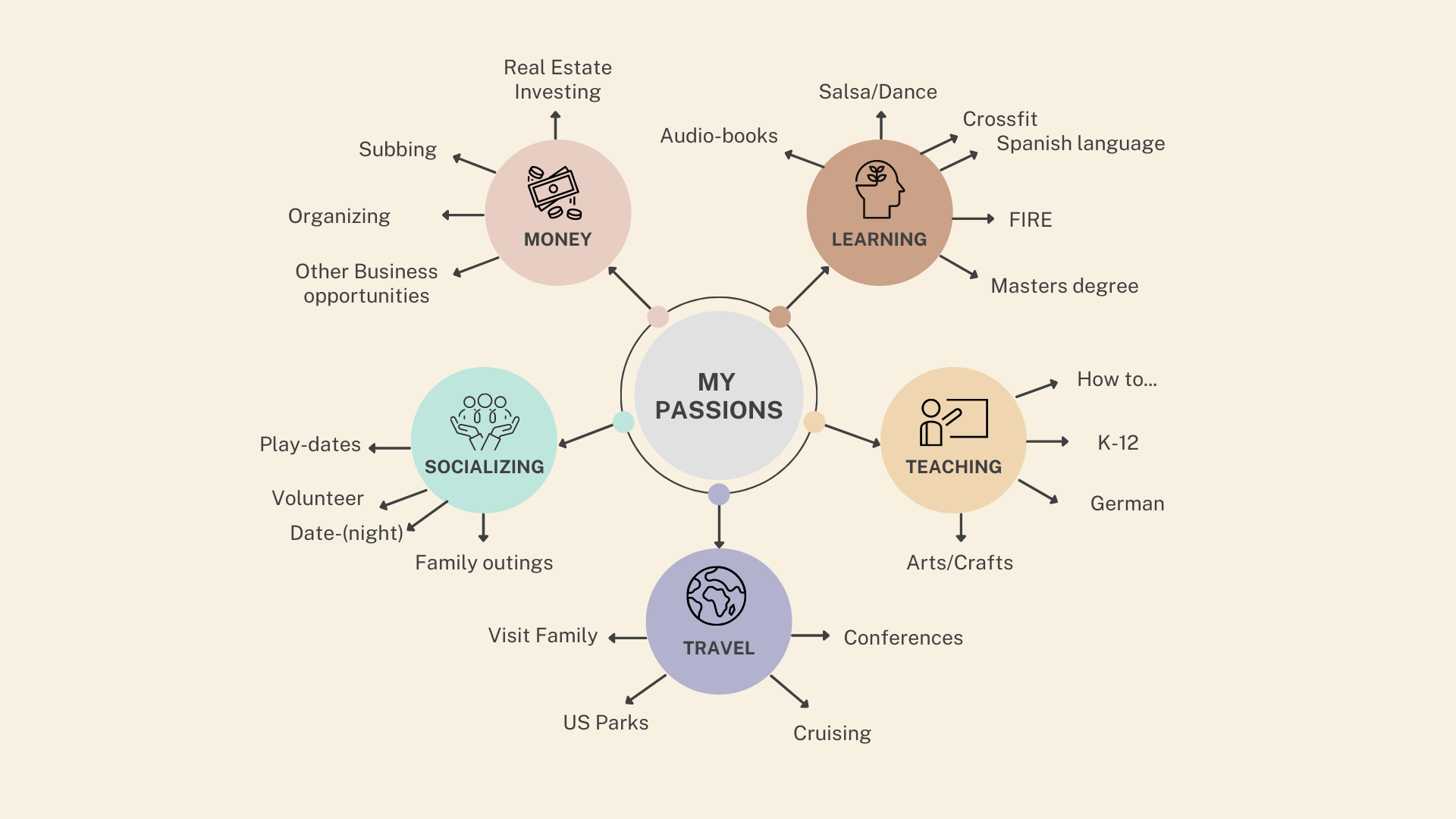How a mind map can help you get to your goals faster
/A mind map is basically a diagram that allows you to organize ideas and help you work toward your goals. You can use it for pretty much anything, from organizing your closet to becoming more productive at work. Here are just a few examples:
Organize your values and beliefs so that you can have clarity in what path to choose moving forward. You can focus on certain areas of well-being such as finances, physical/emotional health, community, career etc..
Arrange your thoughts when making a big decision, such as purchasing a big-ticket item, paying for school or planning a wedding
Brainstorm all the different tasks involved in preparing for an upcoming interview or presentation at work so that they don't seem intimidating anymore! It's much easier when everything is laid out clearly (and color-coded!) than when they're scattered across dozens of sticky notes on your desk or hanging off various surfaces around the office."
Write the goal in the middle of the page.
Write the goal/attribute in the middle of the page.
Next to it, write down a list of sub-goals or related items. These will be smaller tasks that need to be completed before you can complete your primary goal.
“Organize your values and beliefs so that you can have clarity in what path to choose moving forward. ”
Draw lines from the center, and label each one with a step toward achieving the goal.
Start by drawing a circle in the center of your map. Now, draw lines from this center point to each of these steps.
For each line, write down all the steps that are required to get you from where you are now (the center) to where you want to be (wherever the line ends). Make sure that each step is clear and concise; avoid using too many words. For example, if one of your goals is “learn French” then instead of writing “Learn French” or even “Go on Duolingo for five minutes every day for six months until I can say 'Bonjour' without sounding like an idiot…” try something like "Get Duolingo app on phone."
To keep things simple, use just one arrow per step—and make sure it points in a direction toward achieving your goal. If there's more than one way for something to happen or if there are multiple ways for two or more steps to connect then consider adding images (like arrows pointing at other arrows) or symbols next to those connections!
Fill in each step with sub-steps.
Step 1: Define the problem before starting on a solution.
Step 2: Set goals, and don’t worry about what other people's goals are.
Step 3: Be ambitious, but stay realistic. If you have your heart set on landing more clients than you can handle in three months, it may be time to adjust your expectations!
The final step is to fill in each of these steps with sub-steps that will help you achieve your goal faster and more effectively. For example, if your main goal is to get fit by running marathons by December 31st, then under "Set Goals," write down specific training plans and weekly mileage goals for each month leading up until the big race day (December 31st). Don't forget to include rest days and cross-training days too! This way, when those pesky thoughts pop up saying things like "I'm never going to make it!" or "This hurts so much!" they won't derail all of your hard work—and who knows? You just might surprise yourself with how far you've come by December 31st after all!
Related: Why an organized space is important, especially when you work from home
This visual roadmap can help you focus and feel motivated!
The most important thing to remember is that a mind map isn't a quick project. It's not something you can knock out in an afternoon, so I highly recommend setting aside some serious time for it. Start with the center and write down what each step should be. How many steps do you want? What's your timeline? Do you know where this will take you?
Write everything down! Don't worry if it looks like a mess at first—this is only the beginning of your journey, and there are many twists and turns ahead!
Copyright © 2022 by Janine Morales, Professional Home and Business Organizer and Certified KonMari™ Consultant in San Diego and surrounding areas.




